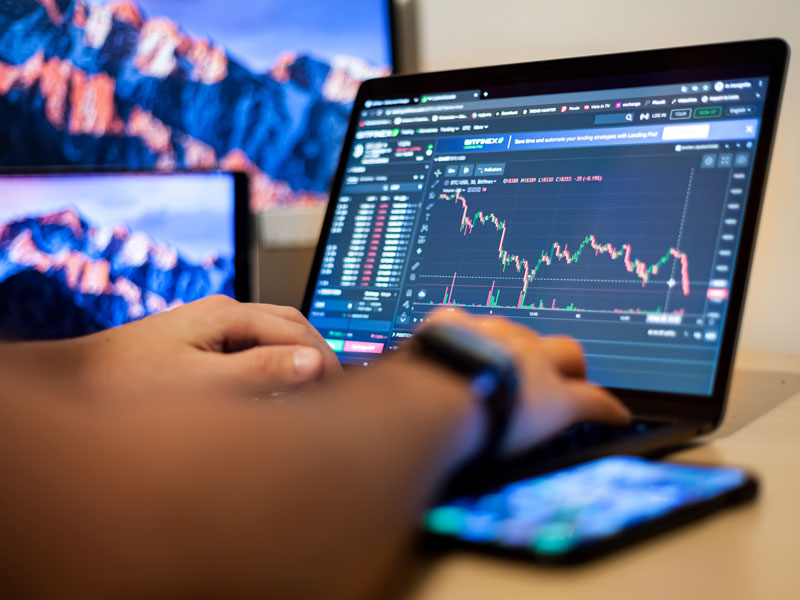Forex Trading Basics A Beginner's Guide 1823056391

Forex Trading Basics: A Beginner's Guide
Forex trading, also known as foreign exchange trading, involves the buying and selling of currencies on the global market. With its immense size and liquidity, the forex market attracts traders from all backgrounds. If you're new to trading and want to understand the fundamentals, you're in the right place. In this guide, we'll cover everything from essential terminology to trading strategies. Additionally, you can find helpful resources on forex trading basics beginners guide Forex Brokers in Jordan.
Understanding Currency Pairs
At the core of forex trading are currency pairs. A currency pair consists of two currencies: the base currency and the quote currency. The base currency is the first currency listed, while the quote currency is the second. For example, in the currency pair EUR/USD, the Euro (EUR) is the base currency, and the US Dollar (USD) is the quote currency.
When you trade forex, you are essentially betting on whether the value of the base currency will rise or fall against the quote currency. If you think the Euro will strengthen against the Dollar, you would buy the EUR/USD pair. Conversely, if you believe the Euro will weaken, you would sell that pair.
Forex Market Hours
The forex market operates 24 hours a day, five days a week, due to its decentralized nature and the fact that trading occurs across major financial centers around the globe. The market is divided into major sessions: the Sydney, Tokyo, London, and New York sessions. Each session has its unique trading characteristics, which can impact volatility and liquidity.
Understanding these market hours is key to developing your trading strategy. For example, the overlap of the London and New York sessions often sees the highest trading volume and volatility, presenting potential trading opportunities.
Forex Trading Terminology
As a beginner, familiarizing yourself with common forex terminology is essential. Here are some key terms to know:
- Pip: A pip (percentage in point) is the smallest price movement in a currency pair, traditionally the fourth decimal place.
- Lot Size: A lot refers to the size of a trade. Standard lots represent 100,000 units of currency, while mini lots represent 10,000 units.
- Leverage: Leverage allows traders to control larger positions with a smaller amount of capital. It can magnify both gains and losses.
- Spread: The spread is the difference between the bid price (the price at which you can sell) and the ask price (the price at which you can buy).
- Margin: Margin is the amount of money required to open a leveraged position. It acts as a security deposit.
Choosing a Forex Broker

Selecting a reliable forex broker is crucial for success in trading. When examining brokers, consider the following factors:
- Regulation: Ensure that the broker is regulated by a reputable financial authority. This adds a layer of security to your funds.
- Trading Platform: A user-friendly and versatile trading platform is essential. Make sure the broker offers platforms that suit your trading style.
- Spreads and Fees: Compare the spreads and any additional fees charged by different brokers to find the most cost-effective option.
- Customer Support: Efficient customer service is vital, especially for beginners. Check if the broker provides support through multiple channels.
Developing a Trading Strategy
A solid trading strategy is vital for success in the forex market. Here are some key components to consider when developing your strategy:
- Risk Management: Determine how much of your capital you're willing to risk on each trade, typically no more than 1-2% of your total account balance.
- Technical Analysis: Many traders use charts and indicators to analyze price movements and predict future trends.
- Fundamental Analysis: Understanding economic indicators and news events can help you anticipate market behavior.
- Trading Plan: Create a well-defined trading plan outlining your goals, strategies, and risk management rules.
Practicing with a Demo Account
Before diving into live trading, it's wise to practice with a demo account. Most forex brokers offer demo accounts that allow you to trade with virtual money. This is a great way to gain experience, test your strategies, and get comfortable with the trading platform without risking real capital.
Continuously Educate Yourself
Forex trading is a dynamic field, and continual education is vital. As you progress in your trading journey, consider the following resources:
- Online Courses: Many courses are available, covering various aspects of forex trading.
- Webinars: Live webinars often hosted by experienced traders can provide valuable insights and tips.
- Books: Numerous books detail forex strategies and psychological aspects of trading.
- Forums and Communities: Engaging with other traders in online forums can help you gain different perspectives and tips.
Conclusion
Forex trading can be incredibly rewarding, but it's essential to approach it with the proper knowledge and preparation. By understanding the basics, selecting a reliable broker, developing a sound strategy, and continuously learning, you can increase your chances of success in the forex market. Remember, patience and discipline are as crucial as knowledge and skill. Good luck on your trading journey!

